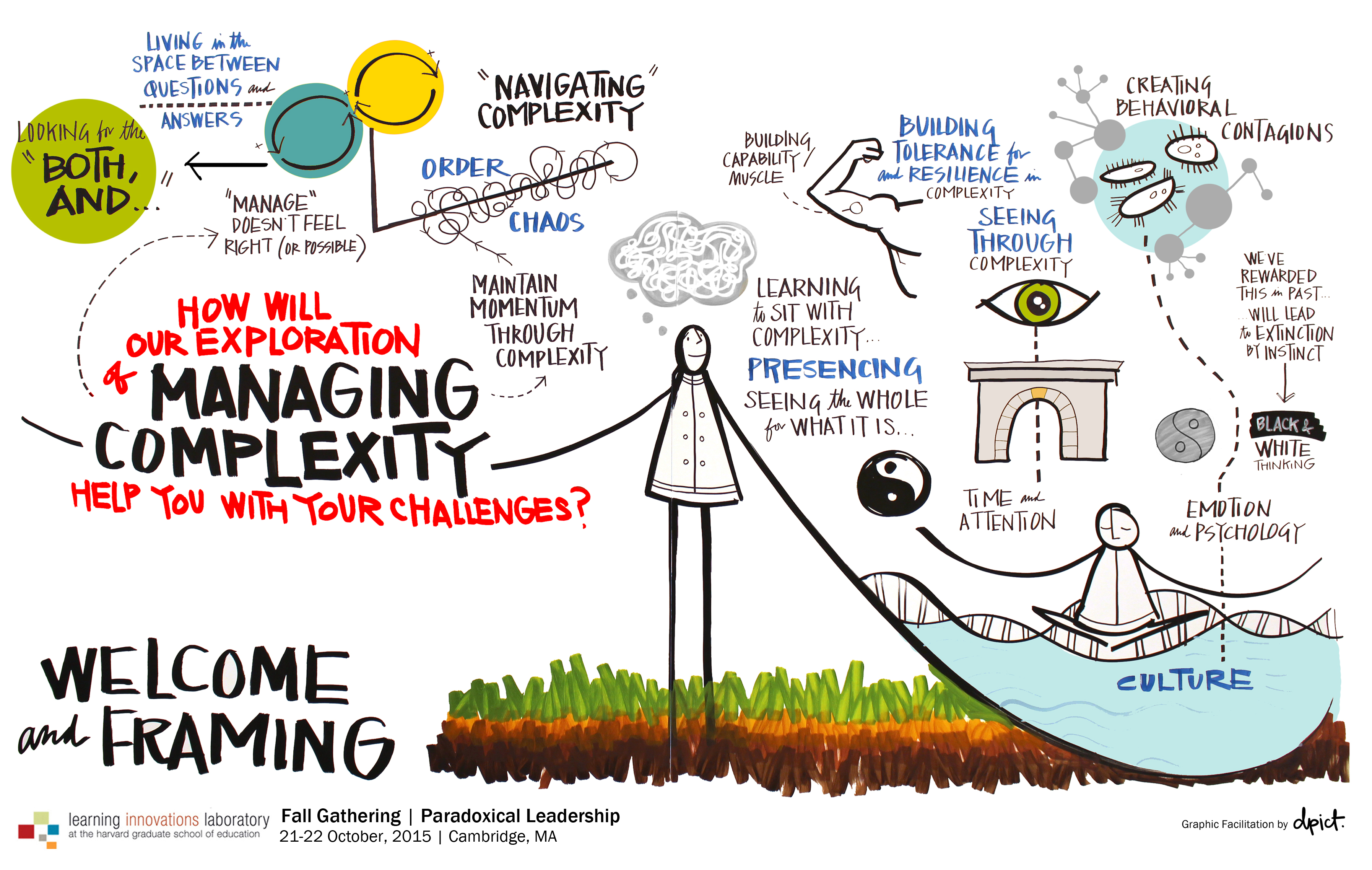The Learning Innovations Laboratory will be celebrating its 10th Annual Summit on June 7th 2016 in Cambridge, MA. This is an opportunity for Chief Learning, Talent and Innovation Officers to come together to explore potential next practices for their organizations. The three keynote speakers at the LILA Summit will be Marianne Lewis (Dean of Cass School of Business), Tima Bansal (professor at the Ivey Business School) and Bob Kegan (Harvard) as well as small group discussions led by distinguished professors and practitioners Deborah Ancona (MIT), Maurizio Zollo (Buconni Univeristy) and Ethan Bernstein (Harvard) with John Bunch (Zappos).
 This year, we have been exploring the theme of Managing Complexity: Navigating Strategic Paradoxes in Organizations. Today’s work environments are complex, and conditions of ambiguity, uncertainty, conflicting goals, contradictory messages, and competing perspectives can create barriers to effective performance. We are asked to take a long-term view and yet make short-term decisions that increase profits. We are asked to learn new things and yet perform at highest levels. We need to innovate but also operate in predictable ways. We oscillate between centralized and decentralized operational structures. We tightly organize work for control but want people to show initiative and self-organize. We encourage collective identity and yet reward individual achievements.
This year, we have been exploring the theme of Managing Complexity: Navigating Strategic Paradoxes in Organizations. Today’s work environments are complex, and conditions of ambiguity, uncertainty, conflicting goals, contradictory messages, and competing perspectives can create barriers to effective performance. We are asked to take a long-term view and yet make short-term decisions that increase profits. We are asked to learn new things and yet perform at highest levels. We need to innovate but also operate in predictable ways. We oscillate between centralized and decentralized operational structures. We tightly organize work for control but want people to show initiative and self-organize. We encourage collective identity and yet reward individual achievements.
Such conditions give rise to paradoxes, contradictory yet interrelated ways of thinking and acting (Smith and Lewis, 2011). Paradox can be a double-edged sword—capable of providing meaning and energy, and also fostering paralysis and deep frustration when people try to avoid or resolve them prematurely. Research suggests that adopting paradoxical practices (actions and mindsets that favor “yes and” rather than “either/or” approaches) is associated with increased performance and creativity. Paradoxical practices are also critical in enabling innovation when a task is complex or when there are limited resources. Paradoxical thinking and action expand the way we come to understand cross-cultural and global issues.
Throughout the year, we have tried to get a better understanding of how paradoxical practices enhance the ability to recognize interrelated aspects of competing elements, as well as how to address the relationships between those elements in a way that brings about a balanced way forward. The theme tackled questions such as: What are key paradoxes in today’s organizational life? How can we make sense of these paradoxes? How do leaders embody paradoxical thinking and action? How do organizations develop these practices in their employees? How might organizations be designed more purposefully to attend simultaneously to competing demands?
The Summit is a culmination of the exploration of the theme. We invite you to join us for this thought provoking gathering.
